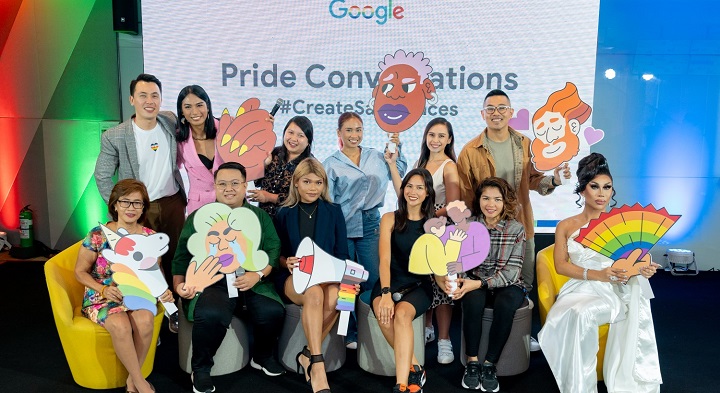
Creating safe spaces is crucial in improving the quality of life of the LGBTQ+ community. In the fourth edition of its annual Pride Conversations, Google Philippines led a powerful discussion featuring YouTube creators on the importance of allyship and the role of safe spaces online and offline.
Hosted by Miss Trans Global 2020, actress, writer, and content creator Mela Habijan, the event delved into the inspiring stories of LGBTQ+ YouTube creators Marina Summers, Johnreyslife, JM Banquicio, Levi Reyes, and Sara De Guzman.
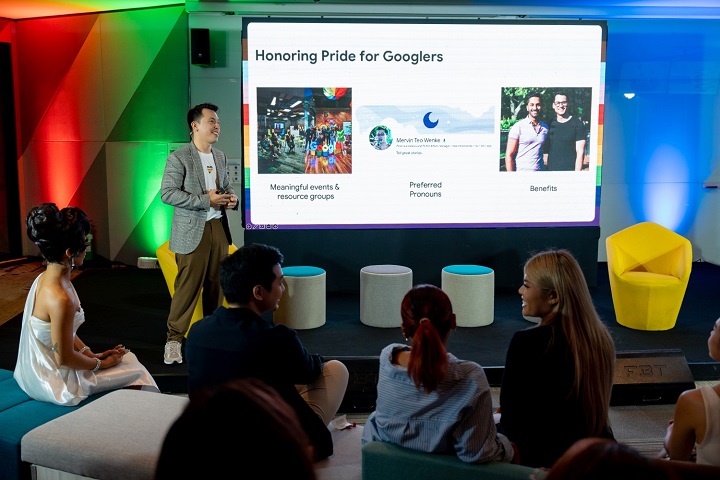
“Pride Conversations, which uses the power of LGBTQ+ stories to create allyship, is part of Google’s deep commitment to diversity, equity, and inclusion. Aside from this annual event, Google supports and celebrates the LGBTQ+ community through an inclusive workplace culture and benefits, product features and policies, humanitarian grants, and so much more,” said Mervin Wenke, Communications and Public Affairs Head at Google Philippines.
Finding safe spaces
The LGBTQ+ community has historically been marginalized by many societies around the world. In the Philippines, the community continues to advocate for safe and inclusive spaces where they can feel comfortable about themselves, and not be discriminated against by the people around them.
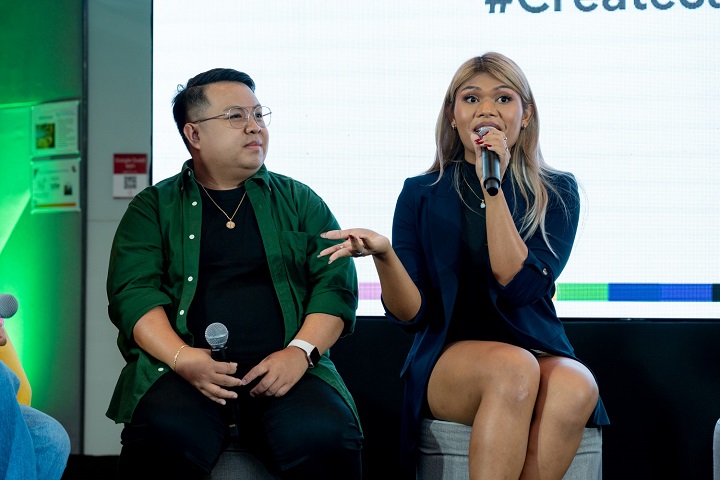
With the rise of platforms such as YouTube, many find solace in the content shared by LGBTQ+ creators. For beauty creator Johnreyslife, YouTube helps her live authentically and makes a difference in the beauty space. “I used to face discrimination and hate for simply being ‘morena’ and ‘trans’. Now because of YouTube and content creation, I’m able to break barriers in the beauty sphere and be a face of representation. Regardless of your sexual orientation, gender, or skin color, anyone is welcome and can succeed on YouTube. Keep striving and dreaming because dreams do come true!”
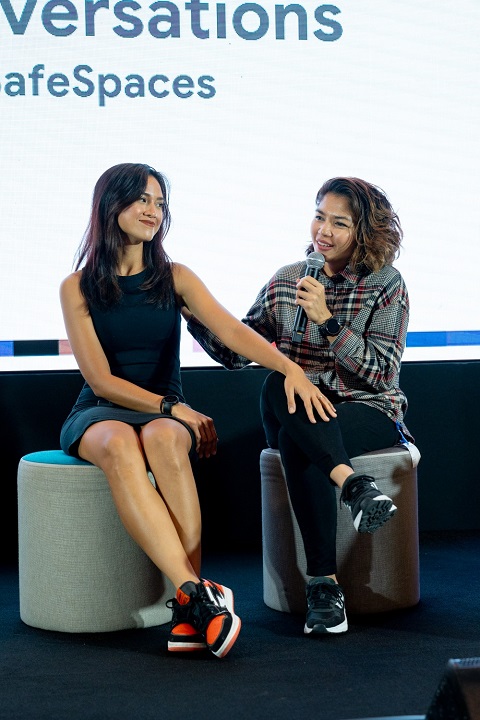
Sara De Guzman of DarlingsPH said that their digital journal for biking trips eventually grew to a supportive community that shares the same interests as her and her partner, Levi Reyes. “We realized that the content we put out there is not only a source of information, but also a source of inspiration,” Sara said.
“Putting content out there drives a powerful message that we are for inclusivity. We are queer people who are part of this vibrant community, and they love us for who we are, they accept us, and most of all, they respect us for who we are,” she added.
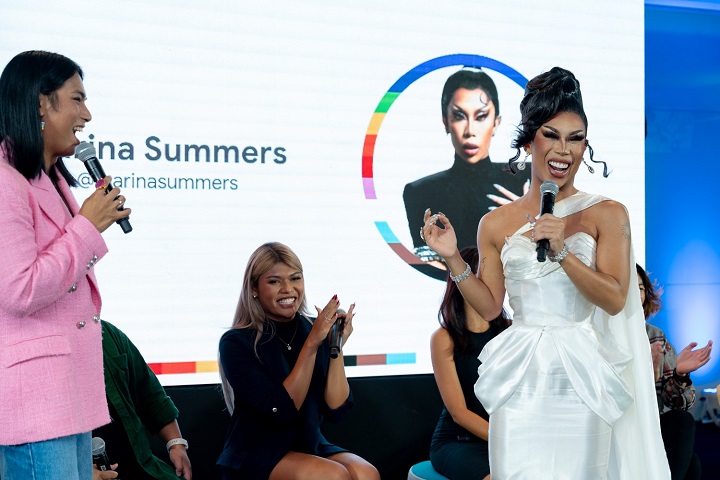
Creating safe spaces is also important for young LGBTQ+ kids who are still exploring their identity. It’s why drag queen and Drag Race Philippines contestant Marina Summers started her YouTube mini-series “Chasing the Sun,” where she showcases the art form of drag and the behind the scenes of her performances. For her, this was her way of telling stories that are close to her heart, while inspiring the younger generation and pushing for accurate representation of LGBTQ+ people.
“It’s a way for me to pat that little Marina on the back because she can finally watch herself on screen. This is also for the LGBTQ+ kids like me who are looking for people they can identify with on TV and social media,” Marina said. “We always talk about representation a lot. It really strikes a chord with someone looking for a sense of belongingness and representation in the media.”
What allyship means for the LGBTQ+ community
JM Banquicio’s travel vlog started out as a fun hobby outside of his corporate job. Now, he regularly uploads his trips on YouTube, and he cited his family as one of his main motivators. “It’s really different when your family supports what you’re doing. You can do anything as long as you have the support of your allies,” he said.
Allies can come in many forms. They can be family, friends, colleagues, an influential figure, and others. They help make sure that LGBTQ+ people feel accepted, and allow them to live authentically and fearlessly, especially in a conservative country like the Philippines.
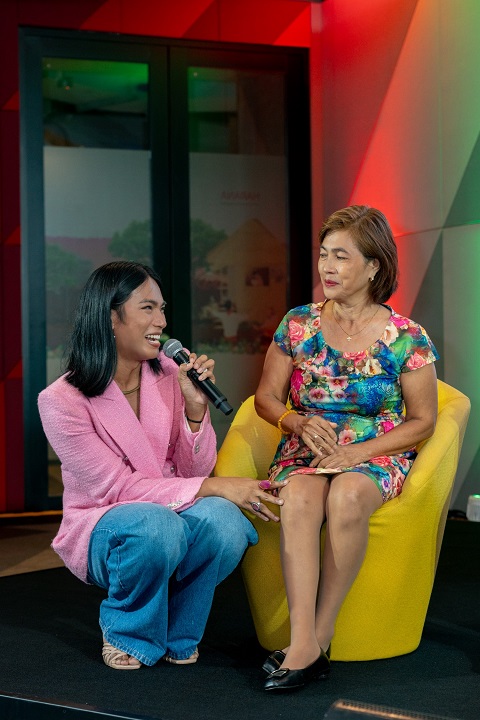
Despite her initial concerns, Mela Habijan’s mom Irene Franco Habijan said she learned to accept Mela as she believed that God created her this way. She also defended Mela from discriminatory remarks, emphasizing that “God has given us all the assurance that we can all go to heaven, including people like Mela.”
For Johnrey, her ally is her good friend Kat Reyes. She recounted how Kat was there through all her ups and downs, and would give her helpful life advice. Because of their close bond, she affectionately refers to Kat as her “cousin” despite not being related by blood.
Likewise, Kat also shared that she learned a lot from her friendship with Johnrey. “I learned how to glow up because of her. I learned how to accept what I have, and just enhance it, while still remembering that it’s still me from deep within. She’s a really inspiring woman,” she said.
LGBTQ+ people need allies who will empathize with them, or in Sara’s situation, cry with them. When she came out to her family, her youngest sister Clarisse De Guzman was crying with her because of how their parents and siblings might react. “I didn’t expect that my tears would turn into tears of joy at that moment because our family still loved Sara for who she is,” Clarisse said.
Levi expressed her gratitude to Clarisse for accepting and supporting their relationship. Apart from Clarisse, she also called the DarlingsPH community, which is made up of mostly straight people, as their allies. “We never stated in our videos that we were lesbians. But when people saw how genuine our relationship was when they watched us, they eventually became allies, too,” Levi said.
Content creator and Bekenemen producer Baus Rufo, who is Marina’s creative partner, consistently shows his allyship by ensuring that drag queens are treated well in shows. “Drag is not cheap. It takes a lot of effort to look this good. The least us producers can do is to make sure they are properly valued, and they are seen for all the efforts they put into a three- to five-minute performance, which takes a lot of preparation,” he said. “I’ll never stop lending a hand and supporting drag queens like Marina.”
This just goes to show that safe spaces online and offline aren’t just places LGBTQ+ people can go to and hang out. They can also be found in the allies who love and support them unconditionally, as well as the content creators they can resonate with.
“Sometimes we don’t need to go to safe spaces. Sometimes the safe space is us,” Marina said.

